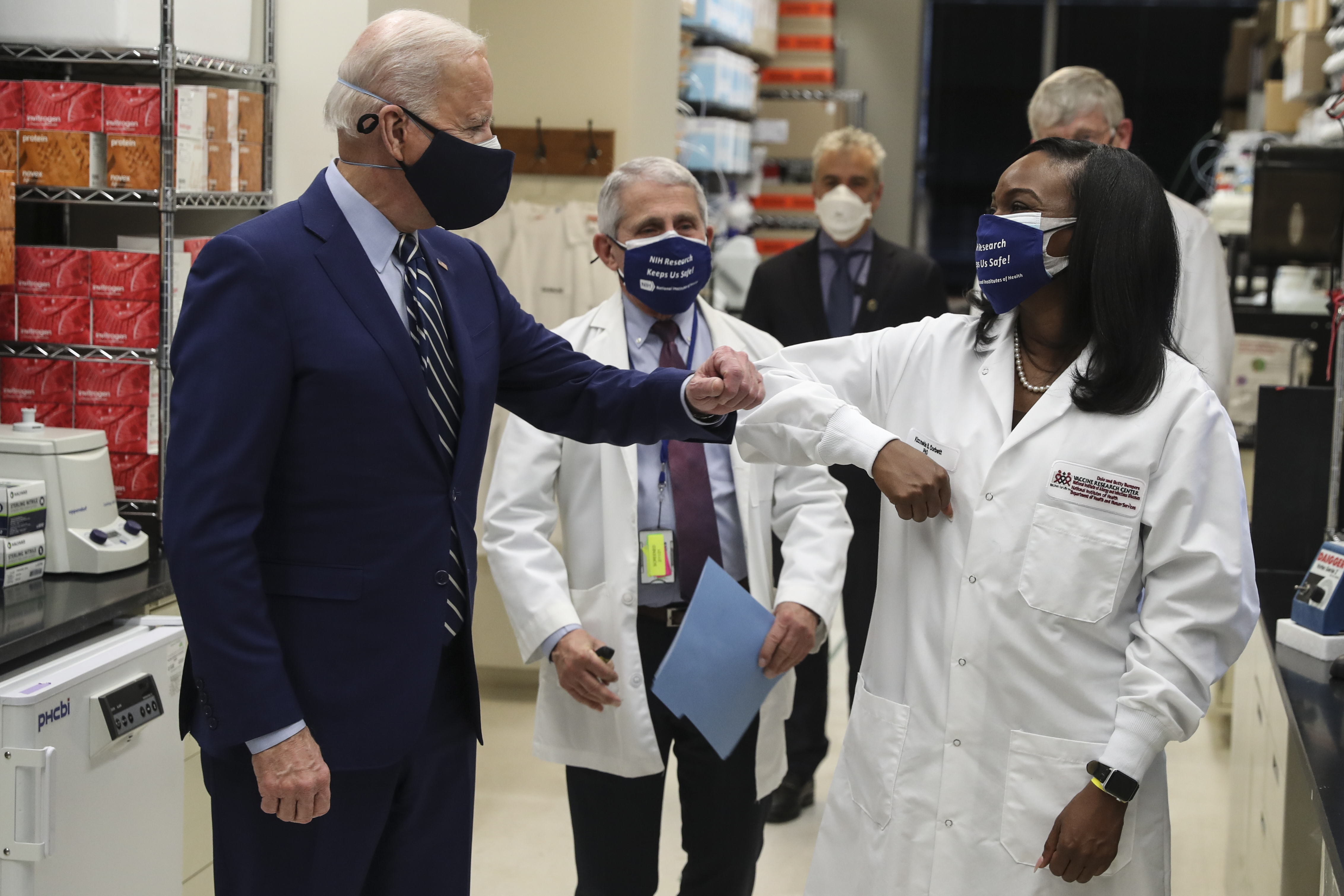US covid contract details are a “trade secret”—according to the contractors
Companies taking millions of dollars from the US government to fight the pandemic are using exemptions to hide travel expenses, labor costs—and even why they’re qualified for the job.

As the US government pumps billions of dollars into projects aimed at curbing the pandemic, from vaccine development to genomic sequencing, officials claim they are being transparent about how money is being spent. But government contractors have a lot of leeway to hide things, as shown by a recent records request filed by MIT Technology Review.
After reporting on the struggles of the US’s $44 million vaccine management system, we requested documents related to the CDC’s no-bid contracts for the underlying software, awarded to consulting giant Deloitte. The records we got back had significant redactions—including the company’s costs, the identities of those who worked on the project, and even Deloitte’s explanation for why it was qualified to do the job.
The CDC paid Deloitte to build a system that would help doctors manage vaccine inventory and report shots, let eligible people schedule appointments, and send out second-shot reminders and proofs of vaccination.
Months after the contracted deadline, Deloitte delivered a customized version of a preexisting Salesforce product called Vaccine Cloud. It was so difficult to use that only a handful of states signed up, as we reported in January.
But the documents released under the Freedom of Information Act deliberately blocked certain pieces of information from the public record, including what prior experience Deloitte had with building similar tools and how charges like travel expenses and labor were justified or broken down. They also redacted the names of everyone involved—even the communications person assigned to the project, who would likely be responsible for speaking to the media.
As part of our reporting, we requested several Deloitte contracts unrelated to the vaccine system from the US Food and Drug Administration. That agency also redacted similar information.
“It's basically a rubber stamp“
All the redactions cite a rule in the Freedom of Information Act commonly referred to as Exemption 4, which allows companies to hide “commercial information” such as trade secrets from the public.
The contractor, rather than the government, decides what is considered sensitive information. When a government agency receives a request for records, it sends that request to the contractors, who mark what they want to keep secret.
Companies have essentially free rein to call contract details “confidential business information,” thanks to a 2019 decision by the Supreme Court. Before that, companies had to explain why releasing the information would cause “substantial harm” to their business.
“Now all the agency has to do is get an affidavit from someone at the company that says, ‘We treat this as confidential business information.’ Period. Full stop,” says Victoria Baranetsky, the general counsel at the Center for Investigative Reporting. “It’s basically a rubber stamp.”
The court’s decision in Food Marketing Institute v. Argus Leader, written by Justice Neil Gorsuch, argued that companies like Amazon should be allowed to hide how much money they receive in federal food stamps, without having to explain why.
The decision has led to increasing secrecy about the business of government, according to Baranetsky.
“The number of contractors in our country is ballooning,” she says. “The substance of material they are responsible for is more core to our basic civil rights and civil liberties than ever before.”
In fact, when requesters protest Exemption 4 redactions in court, government lawyers will even defend the contractors, using the company’s arguments at taxpayers’ expense.
“We have contractors holding children at the border. They work for the military. They’re building the border wall, setting up prisons and schools,” says Baranetsky. “It’s just this shell game of information about how our system is operating.”
This story is part of the Pandemic Technology Project, supported by the Rockefeller Foundation.
Deep Dive
Policy
Is there anything more fascinating than a hidden world?
Some hidden worlds--whether in space, deep in the ocean, or in the form of waves or microbes--remain stubbornly unseen. Here's how technology is being used to reveal them.
A brief, weird history of brainwashing
L. Ron Hubbard, Operation Midnight Climax, and stochastic terrorism—the race for mind control changed America forever.
What Luddites can teach us about resisting an automated future
Opposing technology isn’t antithetical to progress.
Africa’s push to regulate AI starts now
AI is expanding across the continent and new policies are taking shape. But poor digital infrastructure and regulatory bottlenecks could slow adoption.
Stay connected
Get the latest updates from
MIT Technology Review
Discover special offers, top stories, upcoming events, and more.